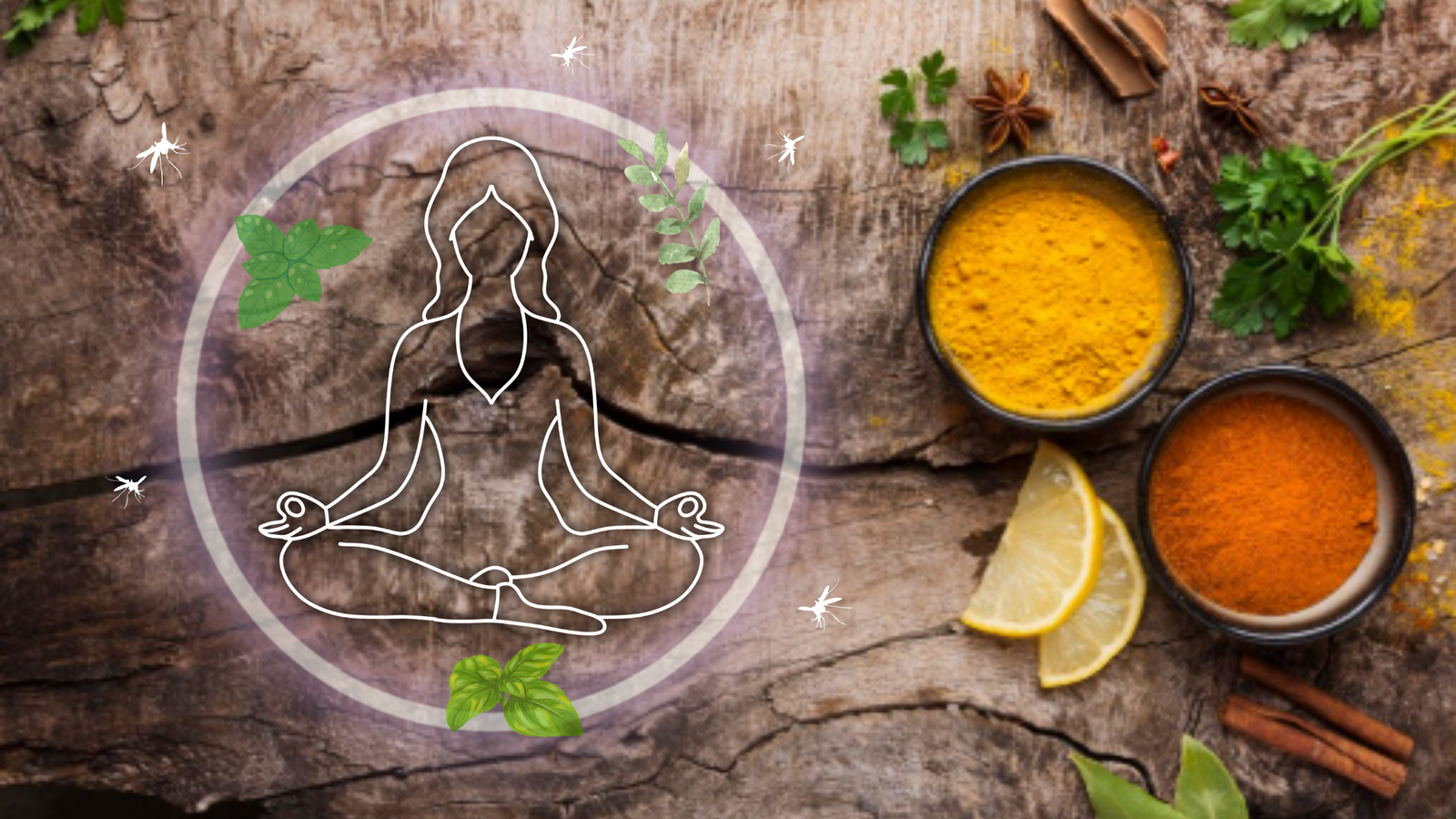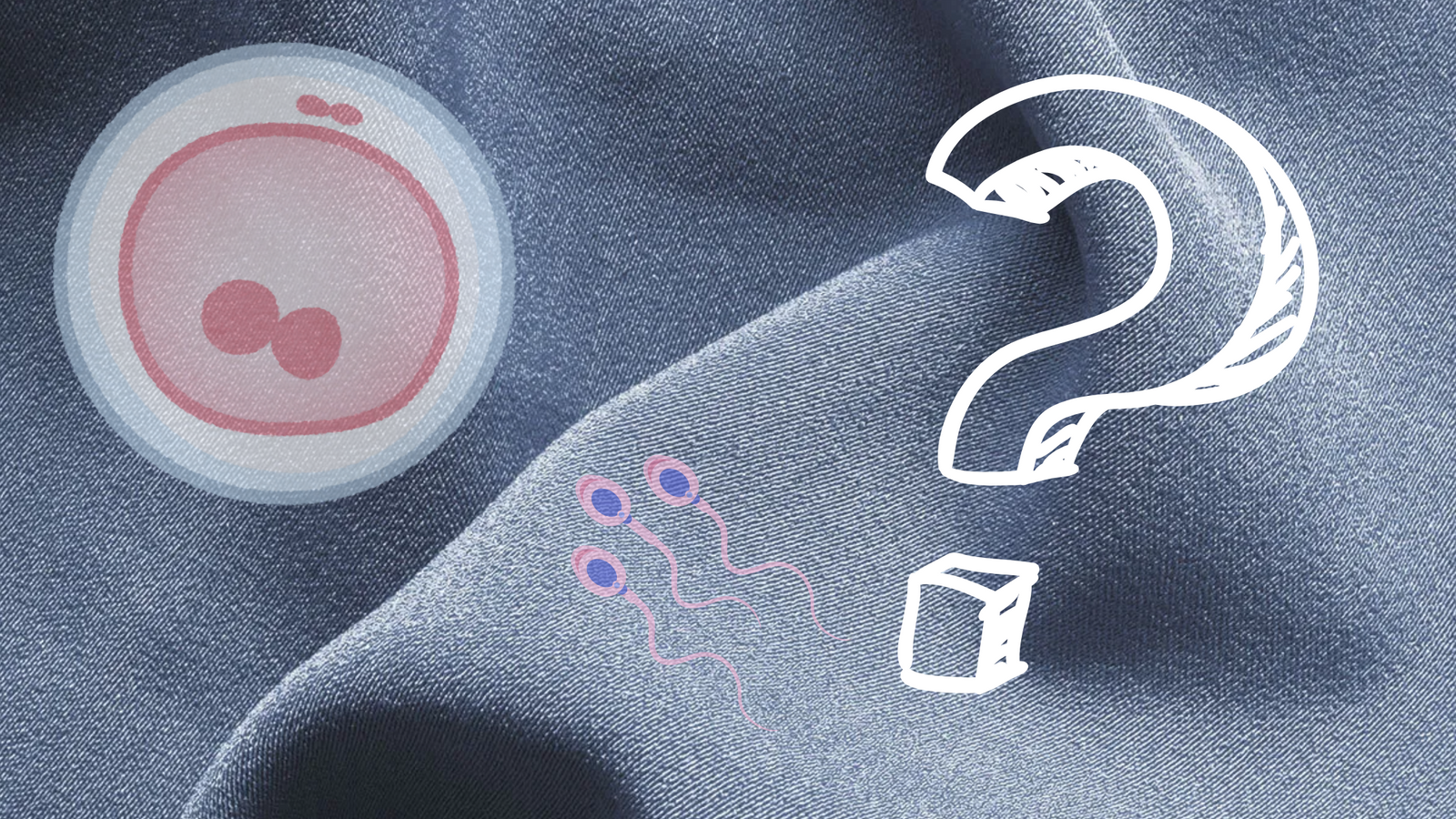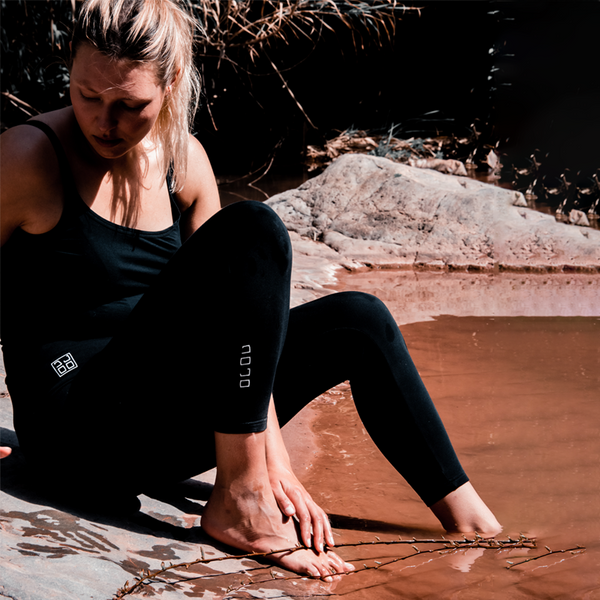Your Cart is Empty
FREE WORLDWIDE SHIPPING! Use code "SUPERNATURAL"
FREE WORLDWIDE SHIPPING! Use code "SUPERNATURAL"

5 min read
It’ll be well known to our audience that Southeast Asia hosts the world’s most popular destinations for yoga retreats, and many of you may well have trips planned for the coming months.
With the lush jungles of Sri Lanka, the peaceful rice terraces of Ubud, or the tranquil beaches of southern India, there’s no better place to immerse yourself in the culture of yoga and meditation.
But there's one unexpected guest making headlines this season - dengue fever.
In 2024, dengue cases surged across popular tourist regions like Bali, with areas such as Uluwatu and Canggu experiencing a 100% increase year-on-year. Health authorities have issued warnings as hospitals brace for seasonal spikes, especially during the wet months.
For wellness travellers and yoga enthusiasts this raises concern, and they're wondering how they can stay safe while honouring their body naturally?
While there's no clinical cure for dengue fever, a growing number of people are turning toAyurvedic and natural remedies to support recovery and resilience.
Backed by centuries of traditional use—and now, increasingly, bymodern studies—plants likepapaya leaf andtulsi (holy basil) are gaining recognition for their potential to ease symptoms and support the immune system.
And the best thing is that these herbal remedies are super cheap and widely available across Asia, so this is a plant-based policy that always pays out.
Dengue fever is a mosquito-borne viral infection transmitted by theAedes aegypti mosquito—often called the “day-biting” mosquito because it’s most active during daylight hours.

Common symptoms include a sudden high fever, severe headaches, muscle and joint pain (hence its nickname, “breakbone fever”), rash, and fatigue. In some cases, it can develop into severe dengue, which may involve dangerous drops in platelet count, internal bleeding, or organ complications.
While most healthy individuals recover in a week or so with rest and fluids, dengue can be especially disruptive—if not dangerous—when caught far from home, in an unfamiliar healthcare system, or during a physically demanding activity like a yoga retreat.
This makes it a real concern for wellness travellers, particularly those headed to Southeast Asia, India, or the Pacific Islands during or just after the monsoon season. (And currently certain US states)
In 2025, dengue outbreaks have already been reported in popular retreat hotspots likeBali,Fiji,Mumbai, andBangkok, with spikes linked to heavy rainfall, stagnant water, and rising global temperatures.
Unlike malaria, there’s no specific antiviral treatment for dengue and no widely available vaccine for most travellers (though Qdenga is now approved in some regions). Prevention is key, but so is knowing how to support your body naturally if you do fall ill.
In Ayurveda, the ancient Indian system of medicine, plants likepapaya leaf,tulsi (holy basil),giloy, andneem have long been used to manage fevers, detoxify the body, and strengthen immunity. Now, some of these natural allies are getting a second look from researchers as treatments for Dengue.

Arguably the most talked-about natural remedy for dengue, papaya leaf juice has gained popularity due to its reported ability to increase platelet counts, which often plummet during infection.
Several small-scale clinical studies have backed up this traditional claim. One study published in theAsian Pacific Journal of Tropical Biomedicine found that patients given papaya leaf extract showed a significantincrease in platelet counts within 24 hours, without any noted side effects.
The bioactive compound believed to be responsible iscarpaine, which may help stabilise cell membranes and support the regeneration of platelets. While more large-scale studies are needed, papaya leaf has emerged as a promising complementary treatment that’s now available in both juice and capsule form.

Tulsi is another staple of Ayurvedic medicine, revered not just for its spiritual significance but also for its antiviral and anti-inflammatory properties. Traditionally used to support respiratory health and reduce fever, tulsi has also shownpotential antiviral activity against dengue in lab-based studies.
In one in-vitro study, alcoholic extracts of tulsi leaves inhibited the replication of dengue virus serotype 2, suggesting a possible mechanism for symptom relief andviral load reduction).
While this research is still in its early stages, tulsi is widely available as a tea or extract, making it an easy and accessible travel companion for yoga retreat-goers.
Giloy (Tinospora cordifolia) is valued in Ayurveda for its immune-boosting and antipyretic (fever-reducing) properties. Some studies suggest it may help modulate the immune response in viral infections, including dengue, though direct evidence remains limited.
Neem (Azadirachta indica), often referred to as a “natural detoxifier,” has shown mild antiviral properties in preliminary studies but should be used cautiously due to its potency and potential side effects.
Garlic may be considered a humble kitchen staple, but it has well documented anti-viral properties andshows effect against Dengue.
While none of these natural remedies replace professional medical care, they may serve as supportive therapies - particularly in managing milder symptoms, improving energy, or helping the body recover faster when paired with rest and hydration.
If you're packing your bags for a yoga retreat in Bali, Kerala, Sri Lanka or Thailand, your suitcase probably already includes leggings, essential oils and maybe a journal.
But in light of rising dengue cases across these regions, it’s worth taking a few extra steps to protect your health, both preventively and in case symptoms arise. So might want to pick up a Papaya leaf or holy basil supplement prior to departure.
Papaya leaf extract is typically taken as a juice or in capsule form—most studies use 25 ml of juice twice daily for a few days during infection.
For tulsi, steep 4–5 fresh leaves or 1 teaspoon of dried leaves in hot water for 5–10 minutes to make a calming, immune-supportive tea. Both should be used in moderation and ideally under the guidance of a qualified practitioner.
Some Ayurvedic practitioners also recommend taking giloy as a pre-emptive tonic, though you should check with a qualified practitioner before starting any new supplement.
Dengue isn’t something anyone wants to deal with on retreat, but being informed, prepared, and supported by nature’s wisdom can make all the difference.
While remedies like papaya leaf and tulsi won’t replace professional care, they reflect a deeper Ayurvedic principle - working with the body, not against it. So pack smart, stay mindful, and let your next yoga journey be one of health, harmony, and resilience on and off the mat.
Comments will be approved before showing up.

4 min read
It's fair to say that the cobra, and its meaning, is less well known than some of yoga's other classic poses such as 'downward dog' or the 'dolphin'.
But it's proably the most benefical and effective pose in the entire practice. In fact, if we could only choose one yoga pose to do forever, it would be the cobra. As it's fantastic for spinal-decompression, which has amazing allround benefits for your body.

5 min read
There's a growing body of research suggesting that exposure to the chemicals used in polyester production might have implications for human fertility. This post will explore the potential connections between polyester and infertility, shedding light on both the chemical exposure it causes and the biological mechanisms that may be affected.

5 min read
Yoga, an ancient practice renowned for its physical and mental benefits, has evolved over time to incorporate various elements and styles.
A recent intriguing addition is kitten yoga - the feline equivalent of puppy yoga. This unique combination of yoga poses and catty companionship offers a delightful and therapeutic experience.

Use code SUPERNATURAL at checkout